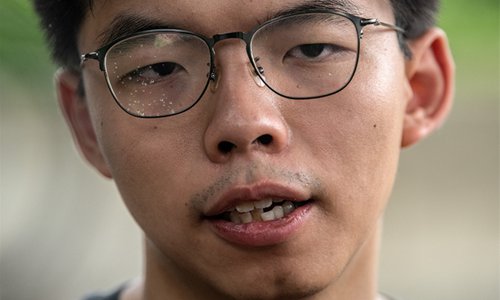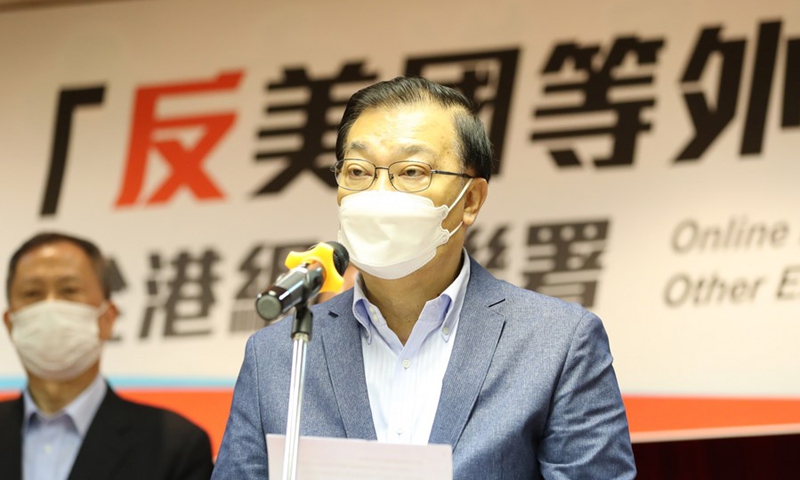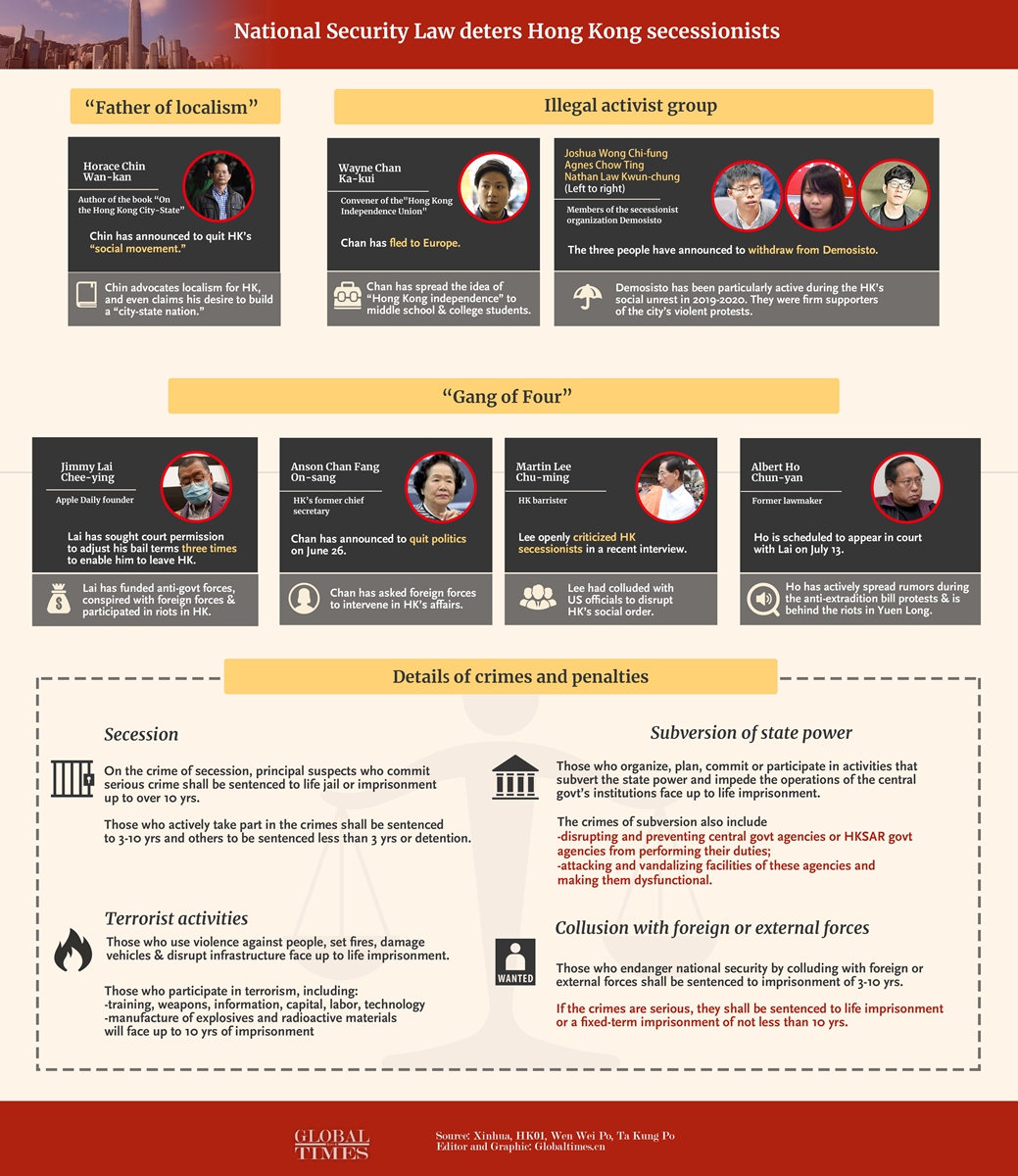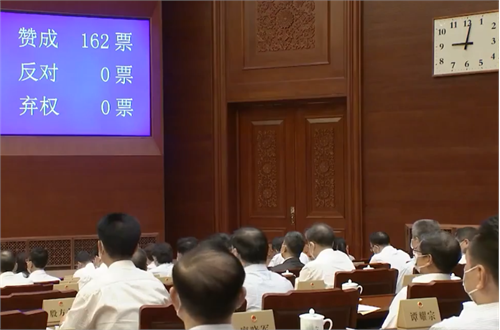
Joshua Wong Photo: VCG
The deterrent effect of the National Security Law for Hong Kong has begun to show, as several secessionist leaders in Hong Kong have either left Hong Kong or disbanded their pro-secession groups on Tuesday, hours after China's top legislature voted to pass the law, analysts said.
Secessionist leaders including Joshua Wong, Nathan Law and Agnes Chow announced their withdrawal from pro-secession group Demosisto Tuesday morning on Twitter.
Shortly after their announcement, Demosisto, an organization founded in 2016 dedicated to secessionist work, said it would disband.
Basa Leung, a political analyst based in Hong Kong, calls Wong a "politikus" who eats human blood.
"He withdraws only because he knows he will be punished by law. Forces like him started chaos in Hong Kong, and have played a destructive role for the future of Hong Kong. Their withdrawal is pure political opportunism rather than their proclaimed ideals, such as democracy and freedom," Leung said.
"Wong incited many young people to breach laws who are now facing the legal consequences, and brought in foreign interference. But now he wants to escape, which is selfish and despicable," Leung said, adding that the national security law comes just in time to deter Wong and his followers and protect other residents from being hijacked.
Victor Chan Chi-ho, vice chairman of the Hong Kong Association of Young Commentators, told the Global Times Tuesday that the withdrawal of the three key figures from Demosisto means they want to avoid legal risks, which shows the deterrent effect of the law and the necessity for the central government to enact the law for Hong Kong.
Other secessionist groups advocating "Hong Kong independence," including the Hong Kong National Front and Studentlocalism, also announced their disbandment on Tuesday.
The deterrent effect of the national security law came into play even before the passage of the law. On Friday, one of the "Gang of Four" in Hong Kong - Anson Chan, Hong Kong's former chief secretary known for her secessionist stance - announced her retirement from political and civil engagements, which analysts believe the soon-to-be law has made forces like Chan realize their political opportunism has come to an end. Chan's retirement has led to a domino effect.
Mark Simon, a right-hand man of Hong Kong secessionist Jimmy Lai Chee-ying said in a recent interview that he is in Taiwan. Responding to questions about whether he fled Hong Kong due to concerns that he could be arrested after the national security is enacted, he did not answer directly, but claimed that he has business in Taiwan.
Lau Siu-kai, a vice-president of the Chinese Association of Hong Kong and Macao Studies, told the Global Times on Tuesday that these key figures' public announcements will very likely disappoint and even instill fear in their followers. "This may set off a chain reaction and cause divisions inside the opposition."

Tam Yiu-chung, an initiator of the online petition against foreign interference, attends a press conference in Hong Kong, south China, June 15, 2020. (Xinhua/Li Gang)
Tam Yiu-chung, a member of the National People's Congress (NPC) Standing Committee from Hong Kong, told the Global Times on Tuesday that the national security law would specifically target four types of criminal acts - secession, subversion of state power, terrorist activities, and collusion with foreign or external forces to endanger national security - and some Hong Kong extremists such as Wong and Chou who have been colluding with external forces in an apparent manner.
"I hope they would stop instigating Hong Kong secession, stop testing the law and challenging our bottom line," Tam said.
Those Hong Kong secessionists have been colluding with foreign forces in fueling Anti-Extradition Bill protests in 2019, and they were arrested by Hong Kong police in 2019.

Infographic:Globaltimes.cn

